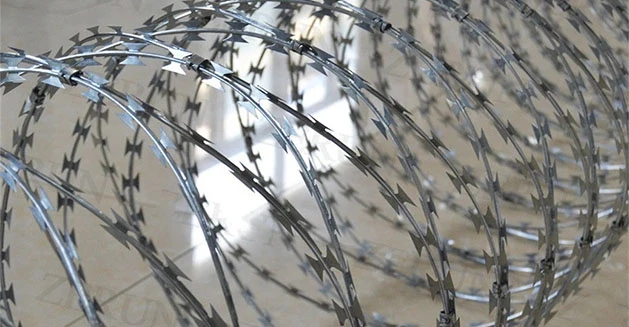Dec . 11, 2024 09:13 Back to list
Effective Strategies for Building and Maintaining Livestock Fencing Solutions
The Importance of Livestock Fencing Keeping Your Animals Safe and Secure
Livestock farming is an essential component of the agricultural industry, providing food, fiber, and other resources for communities around the world. However, with the responsibility of raising animals comes the crucial task of ensuring their safety and security. One of the most effective ways to achieve this is through proper livestock fencing. Fencing serves not only as a physical barrier but also as a means of protecting the health and well-being of the animals under our care.
Why Fencing Matters
Livestock fencing is vital for several reasons. First and foremost, it keeps animals contained within a specified area, preventing them from wandering off into potentially dangerous situations such as busy roads or predators. This containment minimizes the risk of injury or death to the animals and helps farmers avoid the stress and financial loss that can accompany the loss of livestock.
Moreover, good fencing keeps out unwanted visitors. Predators such as coyotes, dogs, and even larger animals can pose a significant threat to livestock. Strong and well-built fences deter these predators, ensuring that your animals remain safe from harm. In addition, it helps prevent theft or unauthorized access to your livestock, safeguarding your investments and ensuring the security of your operation.
Choosing the Right Type of Fencing
When it comes to livestock fencing, there is no one-size-fits-all solution. The choice of fencing material and design depends on various factors, including the type of livestock being raised, the terrain of the land, and the potential threats in the area.
1. Barbed Wire Fencing This traditional form of fencing is cost-effective and commonly used for cattle. Barbed wire fences deter animals from pushing against them and can be easily adjusted to various heights. However, care must be taken to manage injuries that may occur if animals become entangled.
livestock fence

2. Electric Fencing An increasingly popular option, electric fencing provides a psychological barrier for livestock, delivering a mild shock when animals come into contact with the wire. This type of fencing is effective for various animals and is relatively easy to install and maintain.
3. Woven Wire Fencing Ideal for smaller livestock like sheep and goats, woven wire fencing offers excellent containment while minimizing the risk of injury. This type of fencing consists of vertical and horizontal wires woven together, creating a sturdy barrier that animals cannot easily breach.
4. Vinyl and Wood Fencing While typically more expensive, vinyl and wooden fences are aesthetically appealing and durable. These types of fences can be customized to fit the farm's overall look but may require more maintenance than other options.
Proper Installation and Maintenance
No matter which type of fencing is chosen, proper installation is crucial. Fences should be built to withstand local weather conditions and potential wear and tear from animals. Regular inspections for damage or wear are essential to ensure the integrity of the fencing system. Repairing any breaches or weaknesses promptly will help maintain a secure environment for livestock.
Additionally, farmers should consider the layout of their fencing. A well-planned design can help manage grazing patterns and encourage healthy feeding habits, which is vital for the animals' overall health. Rotational grazing, for instance, can be made easier with strategically placed fencing, allowing for more sustainable land use and promoting fertility in the soil.
Conclusion
In conclusion, livestock fencing is an integral part of responsible farming. By choosing the right type of fence and ensuring its proper installation and maintenance, farmers can provide a safe and secure environment for their livestock. This not only protects the animals but also contributes to the overall productivity and profitability of the farm. Investing time and resources into effective fencing systems is, therefore, an investment in the success of the farming operation, ensuring that livestock remain healthy, safe, and productive for years to come. In an ever-evolving agricultural landscape, the importance of livestock fencing cannot be underestimated; it is a fundamental aspect of sustainable and ethical farming practices.
-
Reinforcing Mesh: Core Material of the Construction Industry
NewsJul.07,2025
-
Welded Wire Fabric Reinvented for Modern Projects
NewsJul.04,2025
-
Superiority of Stainless Steel Woven Mesh
NewsJul.04,2025
-
Key Types of Razor Wire and Their Applications
NewsJul.04,2025
-
Durable Metal Fence Types for Security
NewsJul.04,2025
-
Best Materials for Livestock Fence
NewsJul.04,2025
products.







